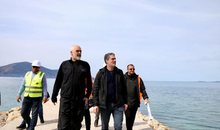
 Flash News
Flash News
Veliaj's appeal to be heard today in the High Court
Today's hearing at the Fier Court, Salianji requests conditional release
Taxi collides with truck on Lezhë-Shkodër axis, driver taken to Trauma in serious condition
At least 91 dead in Texas floods
A decomposed body is found in Kolonjë, initial suspicions
Rama's "new Rozafa" is being designed on contested land in Shkodër

The multi-story tower project in the center of Shkodra is being planned to be built on a plot of land in legal conflict, while urban planners and citizens are worried about the impact it will have on the museum area of the city.
In mid-July, Prime Minister Edi Rama and the mayor of Shkodra, Benet Beci, appeared in a private competition between 5 architecture studios to choose the project of a multi-story tower at the entrance to the museum area of Shkodra.
The selected project was baptized as "new Rozafa" by Rama, while Beci praised it as "innovative".
"It is an object that we intend to create an icon of this century for Shkodra, which is very rich," declared Rama from the stand.
The tower project in Shkodër is being developed by "Rozafa Group" and the support of Prime Minister Edi Rama and Mayor Benet Beci without yet passing through the official approval process raises questions about a possible predetermination of the decisions that are expected to be taken in the future by the responsible institutions.
But this is not the only problem.
The data provided by BIRN also show that the land where the Rozafa hotel is located and where the much taller tower is planned to be built is in a legal dispute and is claimed by the Laçej family, the Albanian Muslim Community and the Autocephalous Orthodox Church of Albania.
The claimants are recognized as dispossessed owners of plots of land in the area and have been in litigation for three decades with a group of former political persecutors who took advantage of the Rozafa hotel through a government ruling in the mid-90s and sold it to later to Rozafa Group businessman, Agustin Uldedaj.
"This is a serious provocation that is done not only to the owners of the land, but also to the entire people of Shkodra with a worthless construction, stealing the land of honest citizens," complained Vjollca Laçej, 65 years old, one of to the claimant family members, referring to the tower project.
In addition to concerns over ownership, the tower project is criticized by urban planners, architects and hundreds of citizens in Shkodër, who say it will damage the museum part of the city.
A petition started immediately after the presentation of the project in July, has already collected over 1,000 signatures and considers the tower "a monstrous work that disrupts the balance of a unique architecture in all of Albania".
Businessman Agustin Uldedaj rejected the claims about the land, stressing that he had bought it years ago.
"I bought 42 people from them, the group of the persecuted. With land and building, I have been certified by the cadastre for 15 years," he said.
The mayor of Shkodra, Benet Beci, refused to comment on the ownership conflict, claiming that the initiative to build the tower had not been formalized. Asked about his and the prime minister's presence in a private presentation, Beci considered it "as participation to give advice". The Prime Minister did not respond to BIRN's questions until the publication of the article.

Hotel "Turizmi", known today as "Rozafa", was built in the city of Shkodra in the early 70s. The 8-story hotel is positioned at a strategic intersection of the city and is located near its museum district.
After the fall of communism in the early 1990s, the hotel was given to a group of 40 former political persecutors through a controversial decision by the government of the time. The government's decision to transfer the hotel was overturned by the Constitutional Court a month later, but despite the decision, the hotel was finally privatized in 1996.
Vjollca Laçej was only 14 years old when the hotel started to be built and as she remembers, the garden in front of the house was first taken. When the hotel was completed in 1973, Laçej says her family was unfairly dispossessed of the entire house and yard.
"They told us that in 24 hours you will be out," she recalls.
After the fall of communism in 1994, the Laçej family was recognized by the Property Restitution and Compensation Committee as the owner of part of the hotel's grounds and its surroundings for a total area of 2075 square meters.
In 1995, the Orthodox Church was recognized as the owner of another 2,633 meters on the border, while the Muslim Committee was recognized as the owner of 2,000 meters.
Since the mid-90s, the three land ownership claimants are in litigation with 40 former political victims, who benefited from the hotel and land through government decisions.
In the years 2008-2009, the Court of Tirana and the Court of Appeal gave the right to 40 politically persecuted and asked the Administration Directorate for the Preservation and Sale of Public Property to enter into a sales contract with them.
After the Appeal decision, the property was sold to Uldedaj. But in 2014, the Supreme Court overturned the decisions that had transferred the property to the persecuted group, finding them in violation of the law.
"Furthermore, the issuance of these authorizations and the conclusion of the relevant contracts for the building and the land (also absolutely invalid) constitute an open challenge that the public property administration bodies have made to the justice bodies (judicial decisions), the Constitutional Court, the law and the Constitutional provisions," says the decision of the Supreme Court of April 2014.
The Supreme Court says that the decision of the Constitutional Court showed that the state had not expressed its will to sell the property. The Supreme Court's decision was to reverse the actions taken in 1995 and give the dispossessed the right to enjoy the property or buy the building on it. But Vjollca Laçej told BIRN that her family, the Muslim Community and the Orthodox Church, have been waiting for the implementation of the court's decision for years.
"The government of that time discriminated against us by giving our property to 40 politically persecuted people. We won at all levels of the courts, but no government has executed the decisions of the courts", says Laçej.
The mufti of Shkodra, Imam Muhamed Sytari, told BIRN that public officials should think about centers that solve people's problems, instead of paying attention to the construction of towers in Tirana or Shkodra.
Sytari also added that it would be good if these projects were not done on the properties of religious communities.
"We are more happy when we hear that constructions will be done on properties that do not affect the sacred property of religious communities, especially when they were not asked and consulted," he said.

In addition to the conflict over the property, plans to build a tower in an area of traditional low-rise buildings met with opposition from hundreds of citizens. After a protest in the streets of the city, over 1,000 people signed a petition demanding the ban on the project, which they say came out of nowhere and the community was not consulted.
Eltjana Shkreli, urban planner, tells BIRN that to give a professional analysis you need to have the project in hand, which you can't actually find anywhere. According to her, the only reference is some random renders circulating on media sites and portals.
"Referring to these images, as far as I understand, the Rozafa hotel will remain, but it will have its own image next to it, with the same name," she said.
Shkreli says that the tower is an ill-conceived ad-hoc plan and such tall constructions are unjustified according to her, damaging the historical centers of Albania's cities.
She also recalled that the city of Shkodra has a Local General Plan approved in 2017, but that, according to her, was not taken into account in the project.
"I don't think this project helps the city, on the contrary, it disfigures it. They sell us the importance of building without a program and without a real identity, because they are incapable of drawing up a development strategy," Shkreli told BIRN.
"It vetoes the Council of Ministers and the Prime Minister, as if he were the sole owner of this country and nullifies any competence of the municipalities," she added.
Even the architect Doriana Musai warns that the construction of the tower near the protected area of the historic center of Shkodra will follow a model similar to that of Tirana, where the cultural heritage has been sacrificed for development and modernization. She expresses concern about the domino effect that this project may have on the further development of the city and the risk of destroying Shkodra's cultural heritage.
"This project and its construction has a large and potential impact on the city and damages the cultural heritage of Shkodra, and is a continuation of the construction models that have been followed in other cities where a destruction of cultural heritage has occurred to build modern towers and staircases,” says Musai.
Businessman Agustin Uldedaj, in a public reaction after the protest, described the criticisms as attacks on business and the project, while he claimed that the latter would bring great benefits to Shkodra.
"The private investment of Rozafa Group, in our property, cannot be used as an argument to carry out political attacks of the day against opponents," he wrote in a public reaction.
Even the Shkodra Municipality avoids comments, stressing that there is still no application for a building permit.
"Until now, the Municipality of Shkodër has not received an application for a construction permit for the project in question. When there is such an application, it will be examined according to the legal criteria in force, including the issues you have raised in your questions," Mayor Benet Beci told BIRN.
However, experts say that the high-rise tower will impact the entire city, so there should have been a public consultation process.
"The claim that this project is a private investment has nothing to do with the public consultation process that must be developed by the municipality, because the importance of this building with this height impacts the entire city," says Imeldi Sokoli, urban planning expert.
"The construction of this tower would mark the beginning of the end of the historic center of the city," he concluded.
Latest news


Fire on Mount Dukat still active, Llogara National Park at risk
2025-07-08 09:28:12
Veliaj's appeal to be heard today in the High Court
2025-07-08 09:16:02
"Bad sign for democracy"/ Parliament neglects reporting by institutions
2025-07-08 09:04:56
Today's hearing at the Fier Court, Salianji requests conditional release
2025-07-08 08:56:39
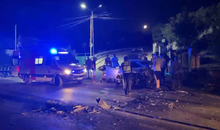

Horoscope, what do the stars have in store for you today?
2025-07-08 08:16:19
Weather forecast/ How temperatures will vary throughout the day
2025-07-08 08:02:37
Morning Post/ In 2 lines: What mattered yesterday in Albania
2025-07-08 07:48:30
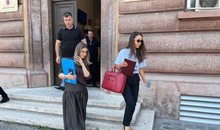




Marrëdhënia që s’është romancë, por s’është as thjesht kolegiale
2025-07-07 21:39:13
Citizen is asked to pay 2.5 million for a non-existent meter
2025-07-07 21:28:03

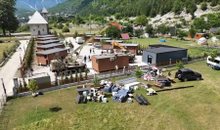


What is the ideal air conditioner temperature in summer?
2025-07-07 20:53:46
GJKKO left him in prison, Meta appeals the decision
2025-07-07 20:38:05
Where is Ronaldo after missing Diogo Jota's funeral?
2025-07-07 20:38:04

Messages from the author who killed Ilaria Sulla in Rome are revealed
2025-07-07 20:20:12
At least 91 dead in Texas floods
2025-07-07 20:12:02
Elbasan, choked by smoke, scorched by conscience
2025-07-07 19:48:16

Swarm of bees attacks citizens in France, 24 people end up in hospital
2025-07-07 19:32:03
Dementia/Hearing loss may be a warning sign
2025-07-07 19:13:06
The decision for Malltez, Gjokutaj: Boomerang for SPAK and the Court
2025-07-07 19:01:08

Former Supreme Court member acquitted of asset concealment
2025-07-07 18:36:40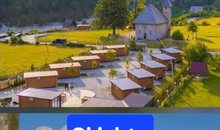

WIIW expert in Politiko: Brain drain is steadily weakening the Albanian economy
2025-07-07 18:11:41
Heart health is at risk from extreme heat, here's what you should be careful of
2025-07-07 18:10:18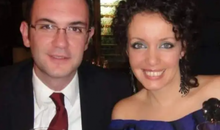
Today Gert Bogdani would celebrate, Edlira Çepani's touching dedication
2025-07-07 17:40:45
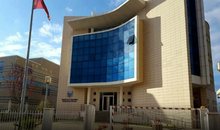
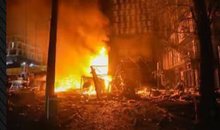

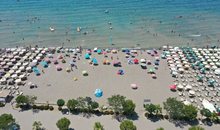


The striker severely accuses the Fenerbahce club: They tried to drug me
2025-07-07 16:21:03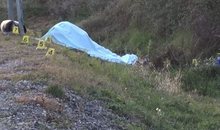
A decomposed body is found in Kolonjë, initial suspicions
2025-07-07 16:03:31
Accident in Saranda, car hits motorcycle, one injured
2025-07-07 15:58:56

The most fertile age for men and women
2025-07-07 15:40:52
Locals, Rama candidate in 5 municipalities
2025-07-07 15:32:22
Blushi: Meta's criminal kidnapping, incomparable even to Navalny's in Russia
2025-07-07 15:20:34
Meet the iPhone 17 Pro, the main innovations in design and technology
2025-07-07 15:09:09
Why the release of Abi Malltez does not free him; much less Albania
2025-07-07 15:00:12
‘Lidhjet klienteliste’ të mjekëve mbushin recetat e pacientëve
2025-07-07 14:57:33
Poland imposes border controls with Germany and Lithuania
2025-07-07 14:48:15

Caught transporting firearms from Kosovo to Albania, young man arrested (NAME)
2025-07-07 14:37:47
Theo Hernandez flies to Saudi Arabia for medical check-ups
2025-07-07 14:26:47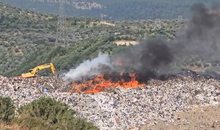


Scorching heat, Greece orders mandatory work holidays
2025-07-07 13:54:25




Trump expects Netanyahu to discuss Gaza ceasefire
2025-07-07 12:54:27
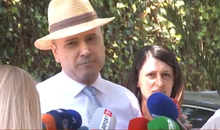
GJKKO releases Jamarbër Malltezi from house arrest
2025-07-07 12:35:02
Tourism among contrasts
2025-07-07 12:31:01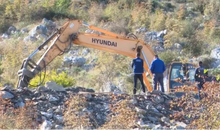
IKMT action in Theth, starts demolition of unauthorized constructions
2025-07-07 12:24:18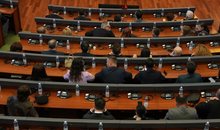
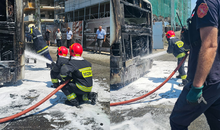
The Tirana-Kamëz line is destroyed by urban fire
2025-07-07 12:00:24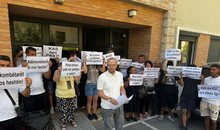


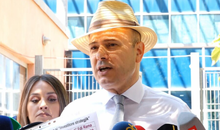

Poor direction!
2025-07-07 11:16:01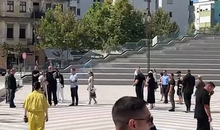


Rama to gather the country's mayors on July 9
2025-07-07 10:43:31
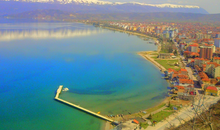
Ohrid Natural Park on the way to UNESCO's "black list"
2025-07-07 10:25:58

Registrations for the new school year begin in e-Albania
2025-07-07 09:59:09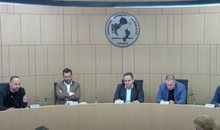
KAS decides the "fate" of the elections in four districts of the country today
2025-07-07 09:50:51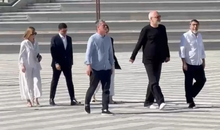
Rama does not give up on Vlora, visits the municipality again
2025-07-07 09:39:11
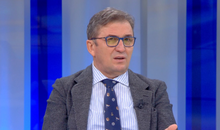
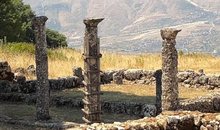
Fires in Gjirokastra, flames very close to cultural monuments
2025-07-07 09:12:49

Foreign exchange, the rate at which foreign currencies are sold and bought
2025-07-07 08:39:57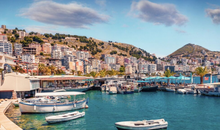

Horoscope, what do the stars have in store for you today?
2025-07-07 08:14:17
The week starts with scorching temperatures, the thermometer reaches 37°C
2025-07-07 07:58:36
Morning Post/ In 2 lines: What mattered yesterday in Albania
2025-07-07 07:45:15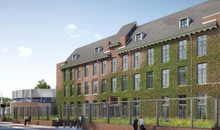



Theologian: Behind Rama's idea for a Bektashi state in Albania, Israel is hiding
2025-07-06 20:57:48